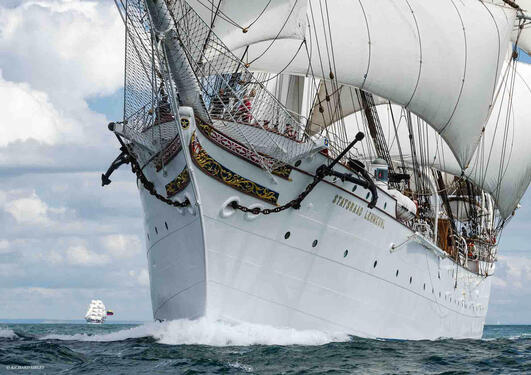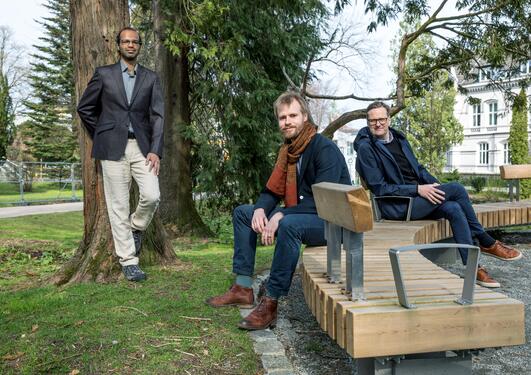Sustainable development through knowledge
How can the university sector engage constructively and critically with the Sustainable Development Goals? This was at the heart of a speech Rector Dag Rune Olsen gave at Maastricht University.

Main content
On 3 September 2018, the opening of the Academic Year at Maastricht University was celebrated in a grand ceremony. Rector Dag Rune Olsen from the University of Bergen (UiB) was one of four keynote speakers, the others being: Dr. Frans Timmermans (first Vice-President of the European Commission), Kate Robertson (co-founder of One Young World) and Dr. Joost van den Akker (Limburg's Regional Minister of Economic Affairs and Knowledge Infrastructure).
Maastricht University's President Martin Paul had invited Rector Olsen to the opening after the Sustainable Development Goals (SDGs) had been a hot topic at the 2018 Worldwide Universities Network (WUN) Conference and AGM in Perth, where the UiB-Rector had presented the university's innovative approach to the SDGs to leaders from the other network members.
A call for knowledge
In his keynote Olsen spoke about the SDGs and how UiB is engaging with these. The goals set by the United Nations (UN) are extremely ambitious, taking in global challenges ranging from eliminating poverty and securing access to food for all to tackling climate change and creating liveable cities.
He took as his starting point the April 2017 letter sent by the then president of the UN General Assembly, Peter Thomson, to all leaders in higher education institutions worldwide as a call for action on the UN's 2030 Agenda.
“He called for knowledge. He called upon university leaders. He called upon students to adopt an ambitious agenda for a sustainable future,” said Rector Olsen before pointing to a December 2017 survey in Global Policy Journal which showed that close to 90 per cent of academic staff agree or strongly agree that their own research and/or teaching is of relevance to the goals.
“At my institution: the University of Bergen, we have launched a strategic initiative – SDG Bergen – to engage with the Sustainable Development Goals, that includes education, research and external engagement and leadership,” he said.
Education and leadership
Rector Olsen acknowledged a number of SDG-oriented measures at Maastricht University, such as its leading position in Problem-Based Learning, which puts discipline-based education into context and is highly suitable for addressing the 2030 Agenda.
“Maastricht University’s small-scale ‘international classroom’ with students from all over the world sitting together, brings a variety of perspectives on board - obviously needed - when global issues are to be addressed,” said UiB's Rector and praising his Maastricht hosts.
“At UiB we are currently reviewing all our programmes to see how the 2030 Agenda best can be addressed. And, I am happy to say that this review was initiated by the students themselves.”
He went on to put special emphasis on leadership and how the university sector contributes to educating the leaders of the future.
“The 2030 Agenda requires leadership – young leadership. For centuries the Royal Norwegian Navy has provided its naval officers with training in leadership on board tall-ships. Knowledge of naval operations, teamwork and responsibility is key to leadership on sea,” Rector Olsen said with particular address to the students at the ceremony.
“Our university will build on this long tradition when we bring university students on board Norway’s largest tall-ship for a course in sustainable leadership based on knowledge, teamwork and responsibility, whilst sailing the oceans of the world.”

